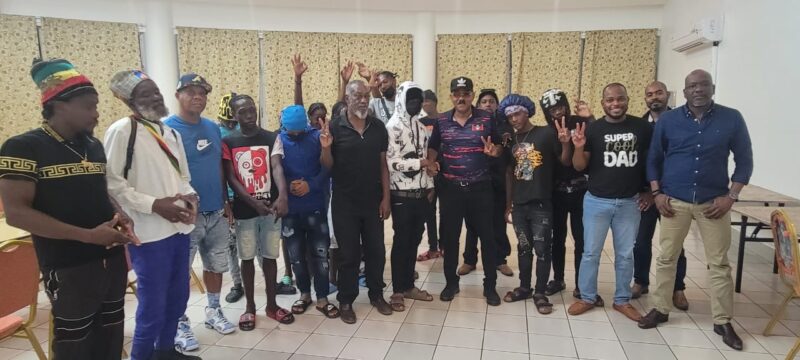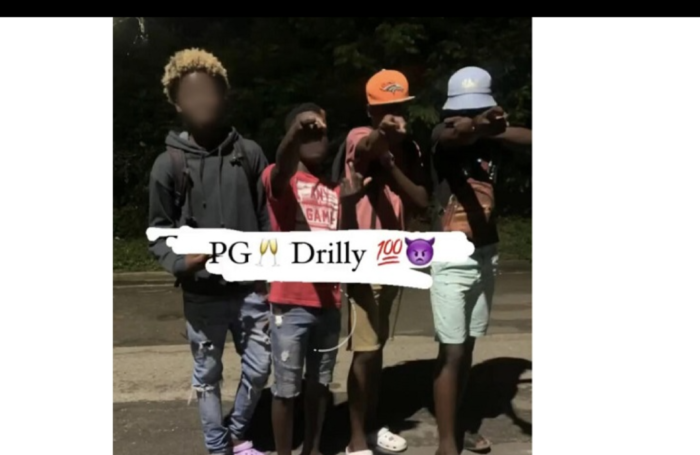
Meeting with Gangs? Yes? Or No?
By Kieron Murdoch | Opinion Contributor
Much has been said about the Prime Minister’s recent meeting with groups of juvenile delinquents and juvenile offenders styling themselves as gangs by the names “2Drilly” and “Grays Farm Thugs”.
While many express misgivings about these dialogues, we believe that agreeing to have this type of engagement with them was a good decision, even if unorthodox.
First though, let us explore the misgivings which we acknowledged when we began. A number of good and right-thinking citizens have expressed their reservations about these dialogues. Their views should not be discounted.
Many believe that these meetings send the wrong message – a message that crime and violence may be rewarded with sit downs rather than punishment. Some question what it will achieve.
Some do not like the image of the state being brought to the table to dialogue with those who are breaking the law and disturbing the peace. Some say it looks like a concession.
All of these are fair and reasonable concerns for any right-thinking citizen to hold. After all, what sort of society would this be if the rule of law was not upheld? Or if crime was not met with consequence?
Nevertheless, we must remember that we are dealing with juvenile delinquents. It is an important factor. When we are dealing with juveniles, it is incumbent upon us to do what we can to understand what is behind their behaviour and to explore whether we can intervene.
This is our first contention as to why we feel these dialogues were a good move, rather than a bad one – that juveniles are more deserving of our time and effort. Remember, some of these young gang members are still 14-years-old and 15-years-old.
Our second contention is that this type of dialogue demonstrates to young people that they are not unworthy of society’s intervention. If you have ever lived in underprivileged circumstances, as many of these young people came from, you know well how easy it is for society to forget you.
This is by no means an excuse for you to engage in wanton thuggery and violence, but too many of our youth have a sense of abandonment as regards the society they live in. Why then would they build a sense of loyalty to that society, or to their neighbours?
Meeting with them with an openness to understanding what drives their behaviour demonstrates to them that the society is willing to invest in them, if they are willing to take a different path. It may not move all of them to change, but if it moves some, then we think some benefit is gained.
Coming from the highest office to meet with those of the least privilege sends the right signal. What signal would have been sent if these youngsters had been open to meeting, but high officials had said, “No. We will never sit in a room with them. They are thugs, unworthy of our time.”
Our third contention is that dialogue of this nature gives the nation’s leader a better grasp of the problem to be addressed.
The government can speak to a hundred social workers, psychologists, sociologists, and criminologists and come away with a hundred different perspectives on what the drives of juvenile delinquency are, and what factors are behind more of our teenage males being in conflict with the law. But unless we actually dialogue with those who commit these crimes and engage in this violence, we will never understand them.
In this vein, we suggest that in addition to this instance of dialogue with these particular youngsters, the government uses its social services resources to commission a long term study of crime and deviance in our society. Get the UWI involved. Get NGOs involved.
Interview former inmates, inmates, juvenile offenders, and their families consistently, and gather quantitative and qualitative data on the factors that drive violent crime of various kinds in Antigua and Barbuda. If a doctor can treat ailments he or she cannot diagnose, then how is society meant to respond to criminal violence which it has not taken the time to study and understand?
Additionally, it has not been reported and we have not understood (though we stand to be corrected) that there were any demands or preconditions set out by the juveniles as regards their willingness to dialogue. In such a circumstance, it is harder to justify turning down or avoiding the opportunity to dialogue. That is our fourth contention.
If for example, one of these juvenile gangs had threatened more violence or lawbreaking if they were not given an audience, then we could understand a harder stance being taken, so as not to be seen to give in to demands being made under threat of violence or lawlessness. But it was not – as we understand it, and as it has been reported – a demand from these youngsters, but a request, or a willingness expressed.
To be honest, we’ve not been able to get straight how the first approach was made – whether by the Prime Minister publicly declaring his openness to dialogue, or by any of these groups conveying their desire to speak. In either case, provided that the state and its representatives were not brought to the table by the threat of violence or lawlessness or as a ransom to secure the cessation of violence or lawlessness, then we see no trouble with an honest dialogue.
Our fifth contention is that meeting with these youngsters for dialogue does not, in our assessment, detract from the investigatory work of the police, nor does it offer amnesty for any offences against the law committed. At least, it has not been reported that way.
Nobody said that the Prime Minister met with them to offer them a free pass and give them a guarantee that they would never see justice for any wrongs they have previously committed.
It may be reasonable to assume therefore, that the police may yet apprehend some of these youngsters for specific offences if their investigations lead them in that direction. Were the government to have approached the meeting intending to legally absolve those who attended of any possible crimes which were still up to that point under investigation, we at antigua.news would certainly raise our voice along with others in this nation in collective disapproval.
We should also consider that much as in war, the alternative to resolution of conflict through dialogue is resolution through force. This is our sixth contention. What would become of these 14-year-olds and 15-year-olds if no effort was made to speak to them, counsel them, and provide avenues other than a life of turf wars and thuggery?
The alternative to dialogue – aimed at turning them away from violence – is sitting back and watching the police do what the police are paid to do – fight crime. Later, when we have teens shot dead in the street because they raised arms against each other, or against law enforcement, will we not ask ourselves, “How did we get here? Was there anything we could do to have stopped it?”
Perhaps what really bothered many of us about the whole thing was the way it was reported. Headlines read “Antigua: Prime Minister brokers truce between rival gangs”; “Antigua PM reaches peace agreement with local gang”; “Further gang war and retaliation averted as Prime Minister Gaston Browne meets with second organised gang” and PM Browne meets with 2Drilly Crew – Agreement to pursue peace reached”.
Government releases and the news thereafter, reported on the meetings in ways that made it a public relations coup for the government. The narrative placed the Prime Minister front and centre as the people’s saviour who lunged bravely into the tempest and quieted the storm before it wrought destruction upon the nation. We understand why such a narrative would have been off-putting for many for a variety of reasons, and particularly on such a complex issue.
But if we cut away the PR that followed the meeting, and we ignore the Maurice Merchants of the world – whose jobs are to make a government and its leaders look good – it may still be fair to say that we are left with a meaningful gesture by the government toward resolving youth involvement in violence, and a productive dialogue between the government’s representatives and juvenile offenders. That, in and of itself, cannot be a bad thing.
Finally, the government ought to be mindful about how it proceeds. Youth intervention – as we discussed in a previous editorial – is a far more comprehensive concept than a few productive dialogues between juvenile delinquents and a high government official.
The government is obligated to turn its attention to measures that provide an effective avenue for these youth to turn their lives around, and all of society must be willing to support this effort. Otherwise, it is likely that they will simply fall back into the same norms.
About the writer:
Kieron Murdoch worked as a journalist and later as a radio presenter in Antigua and Barbuda for eight years, covering politics and governance especially. He is an opinion contributor at antigua.news.
If you have an opinion on the issues raised in this editorial and you would like to submit a response by email to be considered for publication, please email [email protected].






Very well said. Intervention through dialogue which can lead to substantive sustainable solutions going forward is indeed a promising resolution to combat juvenile crime.
Totally agree.
Thanks a lot Mr. Murdoch